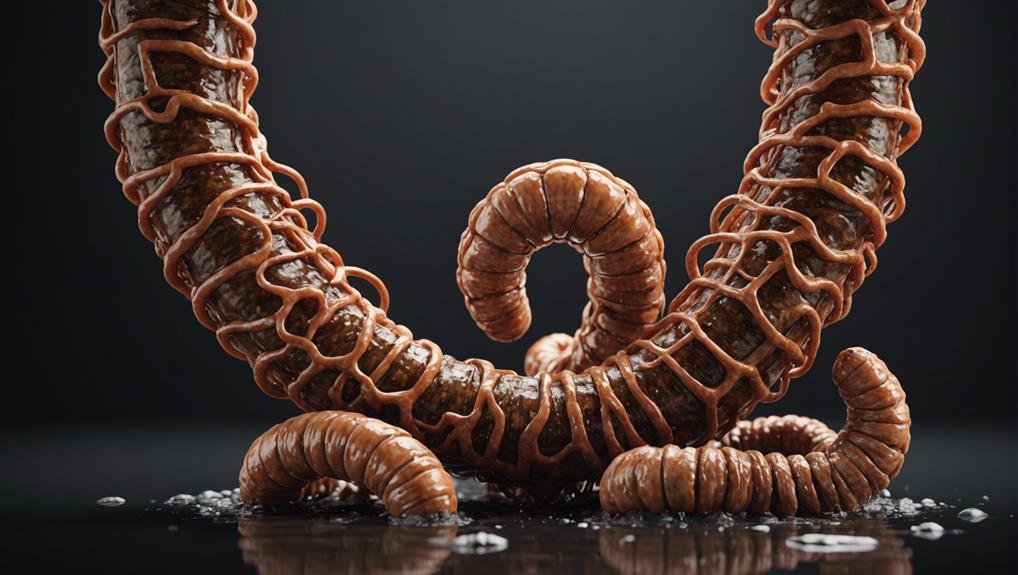Digestive Dilemmas Unveiled: Diarrhea, Constipation, Incontinence
Uncover the intricacies of digestive health with diarrhea, constipation, and incontinence. Explore the causes, symptoms, and triggers of diarrhea, from dietary factors to stress impacts. Discover treatments like hydration, electrolyte balance, and probiotics for relief. Immerse yourself in the world of constipation, recognizing dietary habits and lifestyle choices affecting bowel movements. Learn strategies involving hydration, fiber-rich foods, and exercise to combat constipation effectively. Delve deeper into fecal incontinence, understanding muscle weakness and rectal capacity issues. Implement pelvic muscle exercises and fiber supplements for symptom management. Explore detailed insights for tailored solutions and effective relief in digestive dilemmas.
Key Takeaways
- Dietary habits play a crucial role in causing and managing digestive issues like diarrhea, constipation, and incontinence.
- Hydration is essential for preventing dehydration and supporting healthy bowel movements.
- Exercise and fiber-rich foods help alleviate constipation symptoms and promote regular bowel movements.
- Weak anal sphincter muscles and reduced rectal capacity contribute to fecal incontinence.
- Consult healthcare professionals for persistent or severe digestive problems for proper diagnosis and treatment.
Diarrhea Causes, Symptoms, and Triggers
In examining the intricate world of digestive dilemmas, it is vital to explore the wide-ranging aspects encompassing the causes, symptoms, and triggers of diarrhea.
Diarrhea can stem from various sources, including dietary modifications such as excessive consumption of sugars, dairy, or FODMAPs. Dehydration can exacerbate symptoms, highlighting the importance of hydration techniques in managing this condition. Stress management is essential as heightened stress levels can trigger or worsen diarrhea episodes.
Additionally, immune function plays a significant role in gastrointestinal health, with immune deficiency being a potential trigger for diarrhea. Understanding these interconnected factors is key for thorough management and prevention strategies to address the complexities of diarrhea effectively.
Diarrhea Treatment and Management
Effective management of diarrhea involves implementing targeted interventions to alleviate symptoms, restore electrolyte balance, and promote gastrointestinal health. Proper hydration is vital to prevent dehydration and maintain electrolyte balance. Dietary adjustments, such as following a BRAT diet (bananas, rice, applesauce, toast), can help ease digestion. Additionally, probiotics can aid in restoring the balance of gut bacteria disrupted by diarrhea. Below is a table summarizing key aspects of diarrhea treatment and management:
| Aspect | Importance |
|---|---|
| Hydration | Essential to prevent dehydration and restore balance |
| Electrolyte Balance | Critical for maintaining bodily functions |
| Dietary Adjustments | BRAT diet can aid in easing back into regular eating |
| Probiotics | Help restore healthy gut flora after diarrhea |
| Medications | Loperamide and bismuth subsalicylate can alleviate symptoms |
Understanding Constipation: Causes and Symptoms
Constipation arises from various factors leading to infrequent bowel movements and difficulty passing stool. Dietary habits play a vital role in its development, with a low-fiber diet being a common cause. Lack of exercise, certain medications, dehydration, and ignoring the urge to have a bowel movement can also contribute to constipation.
Symptoms of constipation include having fewer than 3 bowel movements per week, passing hard stools, excessive straining, and a feeling of incomplete emptying.
Hydration importance cannot be overstated in managing constipation, as staying hydrated helps soften stools and aids in their passage. Understanding the impact of dietary habits and the significance of adequate hydration is essential in addressing and preventing constipation.
Strategies for Treating Constipation
Strategies for managing constipation involve a multifaceted approach that targets various aspects of bowel health and function. To address constipation effectively, consider implementing hydration techniques, dietary adjustments, physical activity, and optimizing bowel habits.
| Strategies for Treating Constipation | |
|---|---|
| Hydration Techniques | Dietary Adjustments |
| Maintain an adequate intake of water throughout the day. | Increase fiber-rich foods such as fruits, vegetables, and whole grains. |
| Physical Activity | Bowel Habits |
| Engage in regular exercise to stimulate bowel movements. | Establish a consistent schedule for visiting the bathroom. |
Adopting these strategies can help alleviate constipation and promote better bowel health. Remember to consult a healthcare professional for persistent or severe cases.
Fecal Incontinence: Causes and Solutions
When it comes to the intricate issue of fecal incontinence, it is essential to explore the all-encompassing causes and targeted solutions for this involuntary leakage of stool. Fecal incontinence can be a challenging condition to manage, but there are strategies that can help individuals regain control and improve their quality of life.
Some key causes and solutions include:
- Weak anal sphincter muscles leading to decreased control over bowel movements.
- Reduced rectal capacity, contributing to the inability to withhold stool.
- Lack of sensation of rectal fullness, making it difficult to recognize the need to defecate.
To address these issues, incorporating pelvic muscle exercises and fiber supplements into a thorough treatment plan can greatly improve symptoms and help manage fecal incontinence.
Conclusion
To sum up, the intricate interplay of various factors such as infections, dietary triggers, and physiological conditions contributes to the manifestation of digestive issues like diarrhea, constipation, and fecal incontinence.
By delving into the underlying causes and implementing targeted treatment strategies, individuals can effectively manage these gastrointestinal challenges and improve their overall quality of life.
Understanding the complexities of these conditions is essential in promoting better digestive health outcomes.







